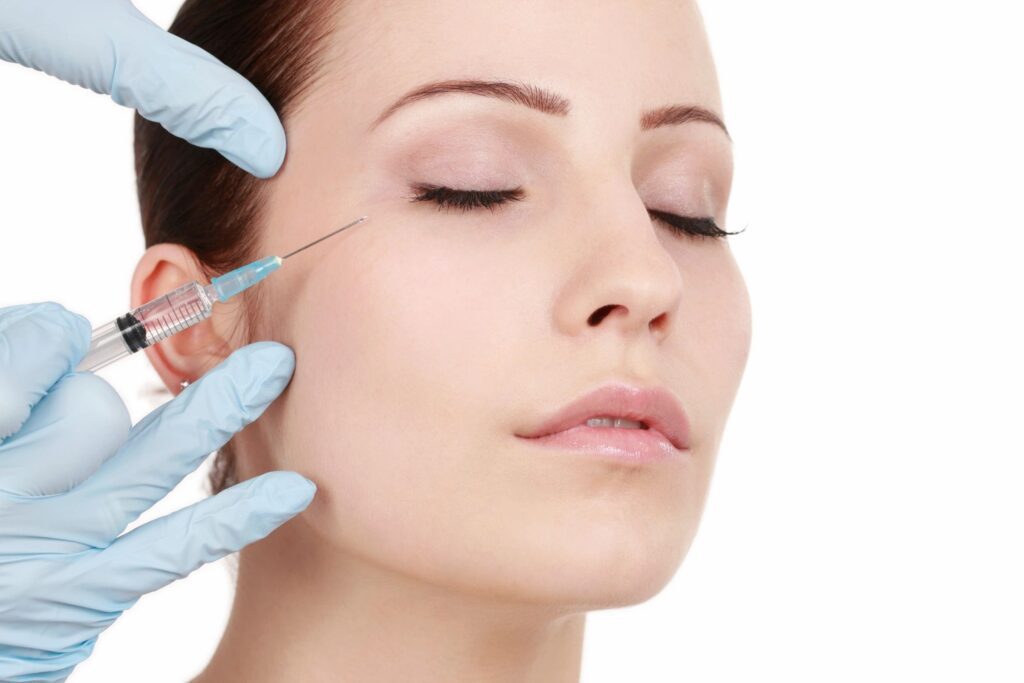Electrodesiccation and Curettage
By Robert S. Bader, M.D., Dermatologist |
Electrodesiccation and Curettage The area is numbed using a tiny needle. The tumor is scraped out using a sharp instrument, called a curette (see photo below), and the base of the wound is burned using an electrical instrument called a Hyfrecator (see photo below), or, less commonly, with a laser. After the treatment, an open…
Mohs’ Micrographic Surgery
By Robert S. Bader, M.D., Dermatologist |
Mohs’ Micrographic Surgery Mohs’ Micrographic Surgery is a highly specialized method of removing and examining cancerous tissue to ensure its removal. Frederic Mohs first invented this procedure, which is named after him. For the most common forms of skin cancer (basal cell carcinoma and squamous cell carcinoma), this procedure has the highest cure rate (least…
Malignant melanoma
By Robert S. Bader, M.D., Dermatologist |
Nearly all melanomas are treated surgically, by cutting the tumor out. Depending upon the thickness (how deep the tumor goes into the skin), staging procedures may be recommended and may include: chest x-ray, CT-scan, PET scan, sentinel lymph node biopsy, and blood tests. Treatment of metastatic disease (that which has already spread to the lymph…
Basal Cell Carcinoma
By Robert S. Bader, M.D., Dermatologist |
Basal cell carcinoma is the most common form of skin cancer. This tumor is not life threatening, except in the rarest of circumstances when tumors go untreated for decades. For most, basal cell carcinoma grows slowly over years, and appears as a pimple-like growth that bleeds, heals, and re-bleeds. If untreated, basal cell carcinoma my…
Squamous Cell Carcinoma
By Robert S. Bader, M.D., Dermatologist |
Squamous Cell Carcinoma Squamous Cell Carcinoma is the second most common type of skin cancer that is caused by ultraviolet rays (sunshine), arsenic ingestion, some wart viruses (human papilloma virus), and radiation. Although uncommon, this tumor does have the potential to metastasize (spread to the lymph nodes and internal organs) and can be fatal. Tumors…
Skin Cancer
By Robert S. Bader, M.D., Dermatologist |
Skin Cancer Information Skin Cancer Dr. Bader specializes in the detection and treatment of skin cancer. As the incidence of malignant melanoma is risking in epidemic proportions, our office offers full body skin examinations to all patients, although these must be requested and scheduled in advance of one’s appointment. It is recommended that all patients…
Actinic Keratosis (Pre-Cancer)
By Robert S. Bader, M.D., Dermatologist |
Actinic keratosis (AK or Solar Keratosis) is the most common precancerous condition affecting the skin. In nearly all cases, these lesions form on skin that has been damaged by chronic exposure to ultraviolet (UV) rays from the sun and/or indoor tanning beds. Do I have to treat these lesions? If left untreated, these precancerous lesions may…
HYDROCHLOROTHIAZIDE (HCTZ) USE IS ASSOCIATED WITH INCREASED RISK OF BASAL CELL AND SQUAMOUS CELL CARCINOMA
By Robert S. Bader, M.D., Dermatologist |
A recent study published in the Journal of the American Academy of Dermatology has shown that taking hydrochlorothiazide (HCTZ) is associated with an increased risk of basal cell carcinoma and an even higher risk of squamous cell carcinoma. The risk was dose dependent (the higher the cumulative dose, the higher the risk). An increased risk…
THERE IS NO REASON TO RE-EXCISE A MODERATELY-ATYPICAL NEVUS
By Robert S. Bader, M.D., Dermatologist |
To those who are patients and those who follow my posts, you know that I am adamant that there has been an over-treatment of these atypical nevi for decades. In short, the data just does not support the removal of these lesions–PERIOD! Another study was just completed at Emory University (Atlanta) and Atlanta Veterans Administration Medical…
CONSUMING ALCOHOL INCREASES RISK OF SKIN CANCER: MAYBE
By Robert S. Bader, M.D., Dermatologist |
A recent study has shown a positive association of increased alcohol consumption with the risk of non-melanoma skin cancer. The study was small, so larger studies are needed to confirm these preliminary results. Here is yet another possible reason to limit or eliminate alcohol consumption. Red wine has some other health benefits that, according to…










